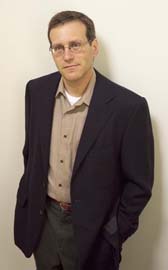I received the email below from the Federalist Societyabout a Teleforum its Intellectual Property Practice Group is putting on tomorrow on “Stopping Online Piracy: Where Should We Draw the Line?”. It’s free and no registration is necessary. To attend just dial 888-752-3232 at 1:00 p.m. (EST), Thursday, February 2, 2012.
The speakers are Larry Downes, “Consultant and Author, Technology, Strategy and the Law,” and Steve Tepp, “Chief Intellectual Property Counsel, Global Intellectual Property Center, U.S. Chamber of Commerce”. Now which one do you think will be the IP shill, eh? Not hard to guess, is it. Hint: Tepp. The US Chamber of Commerce is horrible on this. Here’s what their site is promoting:
U.S. Chamber Calls for Immediate Action on Rogue Sites Legislation
We all agree—theft of American jobs and innovation is not a business model we can continue to allow. Congress cannot ignore this massive loophole in enforcement of intellectual property online. Foreign e-criminals are bleeding our most creative industries in this critical time of economic recovery. A vote for rogue sites legislation is a vote for American jobs and American consumers.
Visit www.fightonlinetheft.com to learn more about the campaign against rogue sites.
If even Tepp comes out against SOPA and in favor of more “reasonable” anti-piracy laws, I’d be surprised. And I’d be even more surprised if Downes comes out against copyright or for a radical scaling back of copyright. He’ll probably say we need more “balance” and while piracy is a “real problem” and while intellectual property is “important” laws “like SOPA” “go too far.” Wow, what a debate.
No one is calling for the real reform we need. Let’s hope Downes surprises me and attacks the disease (copyright), not merely the SOPA-censorship-police state symptom. But I’m not betting on it.
Don’t believe me? Tune in and see for yourself. Here’s the FedSoc email:

|
||||||||||||||||||||
|
||||||||||||||||||||


 Mr. Larry Downes, Consultant and Author, Technology, Strategy and the Law*
Mr. Larry Downes, Consultant and Author, Technology, Strategy and the Law*
 Mr. Steve Tepp, Chief Intellectual Property Counsel, Global Intellectual Property Center, U.S. Chamber of Commerce**
Mr. Steve Tepp, Chief Intellectual Property Counsel, Global Intellectual Property Center, U.S. Chamber of Commerce**


Have you bothered to read my work before making such ridiculous assumptions about what I will or won’t say? I have consistently and repeatedly called for radical and specific scaling back of copyright. You might not be “surprised” if you actually knew something about people you feel so confident pre-bashing.
You must log in to post a comment. Log in now.